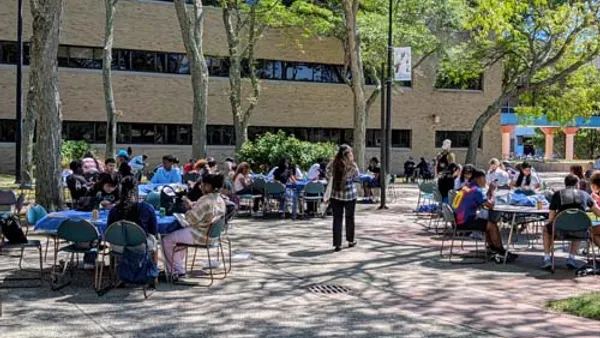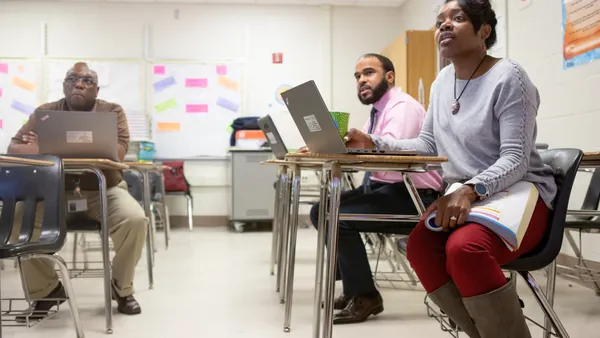Dive Brief:
- The National Constitution Center in Philadelphia on Thursday announced the launch of a three-year pilot program to train rural educators on teaching topics like the First and Fourth Amendments.
- The Civic Education for Rural and Remote Communities Fellowship is to begin in the 2026-27 school year. During the three years, a total of eight fellows are to work directly with 100 to 160 teachers per year and reach more than 300 teachers through quarterly intensive workshops in their communities. The workshops, in turn, are expected to impact the education of about 20,000 students.
- The nonprofit NCC hopes the program will spark “positive dispositional changes” in teachers and students by encouraging engagement and civil dialogue, said Julie Silverbrook, the center’s vice president of civic education.
Dive Insight:
The 60 million Americans who live in rural and remote communities don’t have as much access to such programming — or the potential educator professional learning opportunities that come with it, according to the center.
The fellowship follows on the heels of weekend workshops NCC launched last year to bring educators from rural and remote areas to its museum in Philadelphia. The workshops, Silverbrook said, were “hugely popular” and “rewarding” for the educators.
“The center has had a priority to reach educators in rural and remote areas across the U.S. — educators in communities that have less access to museums, cultural institutions and other nonprofits that provide free, professional learning,” she said. “And we thought, ‘What if there was an AmeriCorps for civic educators?’”
Five middle- and high-school educators will be selected for the fellowship to launch the program, with up to eight participating by the end of year three.
Educators who either are on sabbatical or have left the classroom within the past three years will be eligible to apply and will travel to rural communities multiple times per year through the fellowship. The fellowship will also include remotely conducting professional development, holding weekly office hours and making peer-to-peer connections between visits.
To create this new corps, NCC plans to tap the nation’s strongest civic educators, many of whom it knows through its own boards, Silverbrook said. “I hope to see civic educators who feel more empowered to teach about the Constitution, its founding principles and the practices of civic dialogue. We want to see an impact on teaching and see that students are gaining more civic knowledge.”
Ultimately, the center hopes to see a "shift" in how people perceive the importance of constitutional democracy in their daily lives, and also a continuation of the peer-to-peer connections that will be fostered among teachers, Silverbrook said.
“We hope this is also something inspiring for educators who serve as fellows,” she said, adding that a successful pilot could lead to an expanded program in the future.












